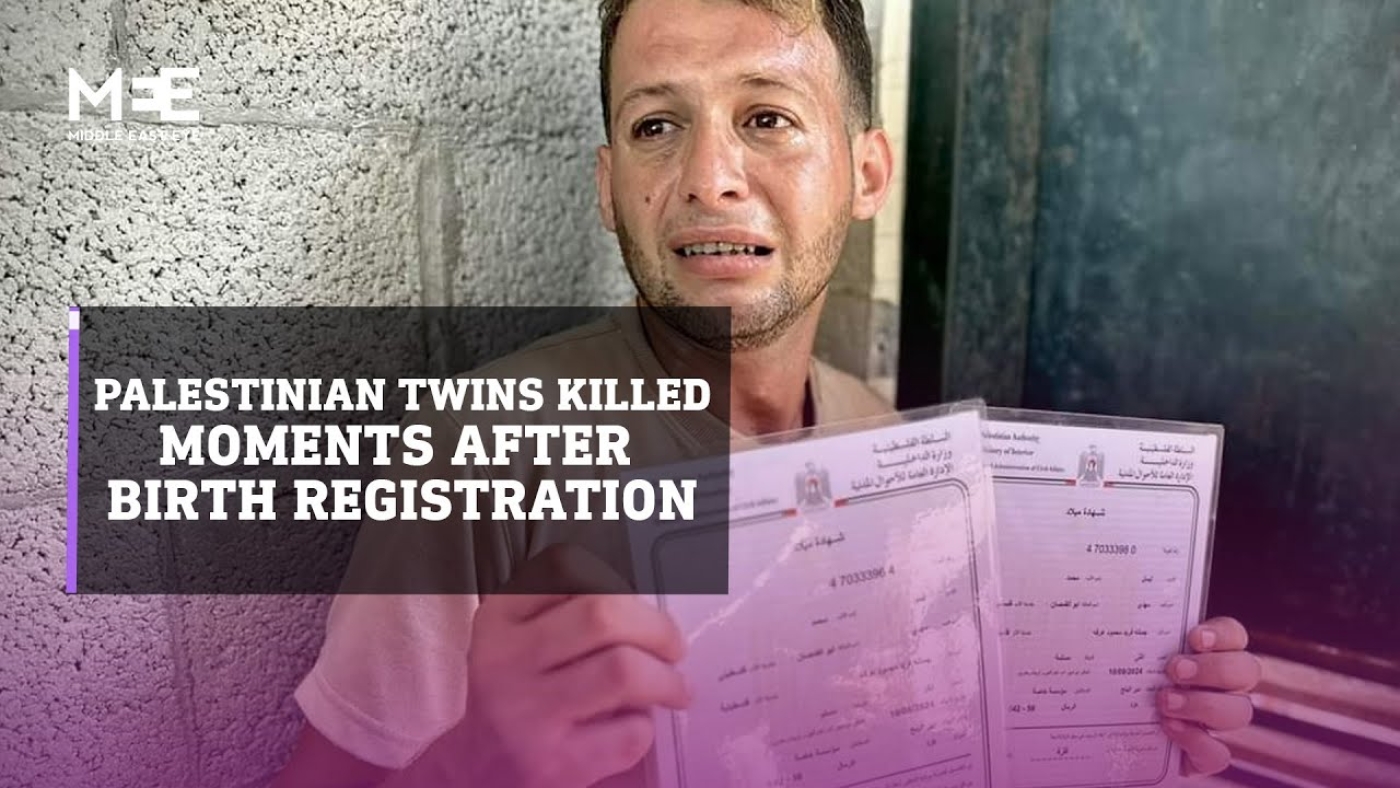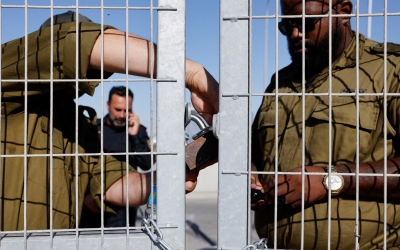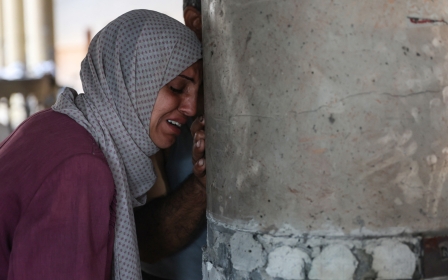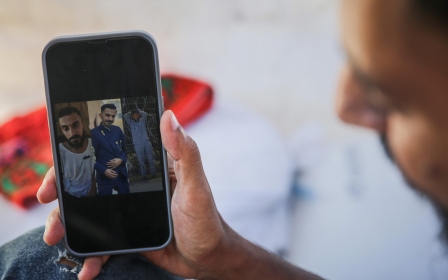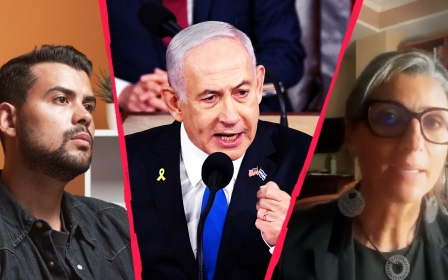'All that was left was bones': Palestinian father mourns newborn twins killed by Israeli army
Muhammad Abu al-Qumsan was on his way to register his newborn twins' births, when an Israeli strike killed them both, as well as his wife and mother-in-law.
The 33-year-old new father had just left Al-Aqsa Martyrs Hospital in Deir al-Balah, central Gaza, when he received a call telling him to return to the hospital.
"I got a call from people in the neighbourhood I live in," he said.
"'Mohammed, are you okay? Where are you?' I asked them what was going on. They said: 'Nothing, just come to Al-Aqsa Street… they bombed the house'."
Qumsan was just round the corner from the hospital, describing the moment he received the news: "I tried to get in the car and came back right away and found them in the refrigerators, martyred.
New MEE newsletter: Jerusalem Dispatch
Sign up to get the latest insights and analysis on Israel-Palestine, alongside Turkey Unpacked and other MEE newsletters
"Five minutes after getting the birth certificate, I was getting their death certificates," Qumsan, 33, told Middle East Eye.
His wife, Jumana Abu al-Qumsan, his two children, a boy and a girl named Aser and Aseel, and Jumana’s mother were all killed by an Israeli artillery shell on their home on Tuesday morning.
The twins were just three days old when they were killed.
They lived on the fifth floor of the Qastal building, east of Deir al-Balah.
The Qumsan family had been displaced three times since Israel’s war on Gaza began on 7 October.
They were first forcibly ejected from Jabalia refugee camp in northern Gaza on 13 October, to Khan Younis in southern Gaza. They were then forced to flee to nearby Rafah, before being displaced once again to Deir al-Balah.
"This apartment is in a safe area because my wife needed some special care due to her pregnancy," said Qumsan. "It is declared within the humanitarian areas."
Since the onset of the conflict, Israel has repeatedly bombed densely populated areas they had previously marked as humanitarian safe zones.
At least 39,000 Palestinians have been killed by Israel since October but the number is considered a low estimate as it only includes deaths registered by authorities in Gaza.
'All that was left was bones'
Jumana had been working as a doctor in the same hospital that her dead body would later be brought to.
She gave birth to Aser and Aseel on Saturday, after a difficult pregnancy. Jumana chose the babies' names herself.
"She suffered a lot for them," said Qusman, "so she preferred that she be the one to name them with distinctive names".
The 33-year-old father was carrying the birth certificate papers in his hands and had been excited to go home and show them to his wife.
"They were still in my hand," he said. "So I went to the [morgue] refrigerators to show them to her."
Eyewitnesses said that Jumana was standing by the window trying to get an internet signal moments before the Israeli bomb struck the apartment.
Her mother had been helping her to look after the newborn twins.
The artillery shell struck the specific room they were all in, and blew them out of the apartment from the fifth floor to the ground.
The contents of their home, including diapers and medication, could be seen strewn across the ground floor, too.
'The children were burned. One of them… it was not clear that he was a child'
- Muhammad Abu al-Qumsan, father
"My wife fell from the fifth floor, lying on the ground in the garden of the tower. On top of her were stones and a concrete column," said Qumsan.
"The children were burned. One of them… it was not clear that he was a child."
As for his other twin, he said, "all that was left was the bones." He could not identify which one was Aser and which was Aseel.
At least 115 babies that had been born in the last 10 months since the war began have been killed by Israeli bombardment, according to the Palestinian health ministry.
"Where are the human rights?" asked Qumsan, of the international community. "Where are my wife's and children's rights?"
"What is her fault that a doctor who treats and heals people should have this happen to her? What did she do?"
Middle East Eye delivers independent and unrivalled coverage and analysis of the Middle East, North Africa and beyond. To learn more about republishing this content and the associated fees, please fill out this form. More about MEE can be found here.


